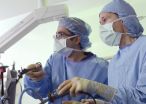(Press-News.org) As the Internet Corporation for Assigned Names and Numbers (ICANN) moves forward with plans to launch health-related generic top-level domains (gTLD), such as .health and .doctor, a coalition of health policy academics and clinicians are raising concerns about a process they say "favor[s] business interests and the generation of profits over the future integrity of the Health Internet."
In a commentary published in the open access journal Globalization and Health, the authors - led by Tim Mackey of the Global Health Policy Institute – call for a moratorium on use of the new internet gTLD domain .health. They argue that ICANN's "lack of adequate stakeholder participation and…transparency" has fueled an awards process that disregards the public's interest in reliable health information in the interest of "contracting .health to the highest bidder." They note the six-figure application costs and bidding award system make participation in the domain delegation process unfeasible for health care non-profits and that the oversight body has failed to acknowledge concerns submitted by organizations such as the World Medical Organization, the World Health Organization and Save the Children among others.
"Yet while ICANN has chosen to disregard these cautions, it has favored applicants from other sectors including larger corporations," the commentary explains. "As an example, when ICANN's Governmental Advisory Committee protested that certain new gTLDs (.wtf, .fail, .gripe and .sucks) could be wielded against businesses by angry customers – no corporation ever wants to see http://www.yourbrandname.sucks – ICANN singled these out for "special safeguards" and suspended further plans."
Tim Mackey says: "Despite the growing importance of health information online, little is known about the characteristics of health-related generic top-level domain applicants. What is clear, however, is that several privately held, for-profit businesses, many of which are completely unknown to the public health field and have no such expertise, are actively seeking or have already been awarded these new health domains and propose few if any needed restrictions on future use."
As the commentary explains, the decisions ICANN is making today will determine the future of the "Health Internet." Putting health-related gTLDs into the hands of domain registrars whose only incentive will be to maximize profits by auctioning sites to the highest bidder, means the future web could easily see: http://www.smoking.health, owned and administered by tobacco companies and unscrupulous vendors operating http://www.cancer.doctor to lure vulnerable patients.
As a way of addressing these issues, the authors call for an immediate moratorium on the use of .health and other health-related generic top-level domains. They also encourage ICANN to enter into active consultation with members of the global public health community.
"Were ICANN to agree to this moratorium, we would recommend the formation of an expert working panel comprised of a diverse set of eHealth stakeholders to constructively discuss the appropriate role and governance of generic top-level domains to ensure universal access to quality health information online. This includes discussion on consumer privacy and protection, methods of assurance and verification of quality/trusted health information, proactive prevention of online fraud and abuse."
INFORMATION:
Media Contact
Shane Canning
Media Officer
BioMed Central
T: +44 (0)20 3192 2243
M: +44 (0)78 2598 4543
E: shane.canning@biomedcentral.com
Notes to Editor
1. Commentary
A Call for a Moratorium on the .health Generic Top-Level Domain: Preventing the Commercialization and Exclusive Control of Online Health Information
Tim K Mackey, Gunther Eysenbach, Bryan A Liang, Jillian C Kohler, Antoine Geissbuhler and Amir Attaran
Globalization and Health 2014, 10:62
For a copy of this article during embargo please contact Shane Canning (shane.canning@biomedcentral.com)
After embargo, article available at journal website here:
http://www.globalizationandhealth.com/content/10/1/62
Please name the journal in any story you write. If you are writing for the web, please link to the article. All articles are available free of charge, according to BioMed Central's open access policy.
2. Globalization and Health is an open access, peer-reviewed, online journal that provides an international forum for high quality original research, knowledge sharing and debate on the topic of globalization and its effects on health, both positive and negative.
3. BioMed Central is an STM (Science, Technology and Medicine) publisher which has pioneered the open access publishing model. All peer-reviewed research articles published by BioMed Central are made immediately and freely accessible online, and are licensed to allow redistribution and reuse. BioMed Central is part of Springer Science+Business Media, a leading global publisher in the STM sector. http://www.biomedcentral.com
Experts call for a moratorium on use of new internet domain .health
2014-09-26
ELSE PRESS RELEASES FROM THIS DATE:
Viral infection in transplant recipients increases risk of developing damaging antibodies
2014-09-26
Washington, DC (September 25, 2014) — Kidney transplant recipients infected with BK virus are more likely to develop antibodies against their kidney transplants than uninfected patients, according to a study appearing in an upcoming issue of the Journal of the American Society of Nephrology (JASN). Future treatment strategies should focus on simultaneously clearing BK infections while protecting against risks of transplant rejection.
Many people are infected with BK virus, and it rarely causes disease. However, for transplant recipients and others who take immunosuppressive ...
Not all Hispanics are the same when it comes to drinking
2014-09-25
Hispanics are often grouped into a single category when it comes to alcohol use. Yet a new Michigan State University study indicates that the risk of alcohol abuse and dependence can vary significantly among different subgroups within the population.
Using pre-existing national data which looked at the incident rate of alcohol use disorders, or AUDs, over a period of time, Carlos F. Ríos-Bedoya, an assistant professor in the College of Human Medicine, is the first to determine that the annual incidence rate isn't the same among all Hispanics and prevention efforts shouldn't ...
Gastric bypass bests banding for weight loss, diabetes, high blood pressure and cholesterol control
2014-09-25
DALLAS – Sept. 25, 2014 – Gastric bypass surgery has better outcomes than gastric banding for long-term weight loss, controlling type 2 diabetes and high blood pressure, and lowering cholesterol levels, according to a new review by UT Southwestern Medical Center surgeons of nearly 30 long-term studies comparing the two types of bariatric procedures.
The review, appearing in JAMA, found that those undergoing gastric bypass operations lost more weight — an average of 66 percent of their excess weight, compared to 45 percent average excess weight loss for those undergoing ...
Bariatric surgery not a magic wand to curb depression
2014-09-25
Most severely obese people experience much better spirits once they shed weight through a diet, lifestyle changes or medical intervention. This is unfortunately not true for everyone, says Valentina Ivezaj and Carlos Grilo of the Yale University School of Medicine in the US. In an article in Springer's journal Obesity Surgery, the researchers advise that the levels of depression in patients be measured six to 12 months after they have had such bariatric surgery. This will ensure that the necessary help can be provided when needed.
Ivezaj and Grilo set out to investigate ...
Long-term unemployed struggle as economy improves, Rutgers study finds
2014-09-25
NEW BRUNSWICK, N.J. – While the unemployment rate for people out of work for six months or less has returned to prerecession levels, the levels of unemployment for workers who remain jobless for more than six months is among the most persistent, negative effects of the Great Recession, according to a new national study at Rutgers. In fact, one in five workers laid off from a job during the last five years are still unemployed and looking for work, researchers from the John J. Heldrich Center for Workforce Development found.
Among the key findings of "Left Behind: The ...
Blackout? Robots to the rescue
2014-09-25
Big disasters almost always result in big power failures. Not only do they take down the TV and fridge, they also wreak havoc with key infrastructure like cell towers. That can delay search and rescue operations at a time when minutes count.
Now, a team led by Nina Mahmoudian of Michigan Technological University has developed a tabletop model of a robot team that can bring power to places that need it the most.
"If we can regain power in communication towers, then we can find the people we need to rescue," says Mahmoudian, an assistant professor of mechanical engineering–engineering ...
Drivers admit to risky behaviors in RU-Eagleton, NJ Medical School public health poll
2014-09-25
NEW BRUNSWICK, N.J. – In a state famous for its turnpike and infamous for traffic, tolls and "Jersey drivers," a new partnership between the Rutgers-Eagleton Poll and Rutgers New Jersey Medical School (NJMS) has launched a series of public health polls with a survey about risky driving habits. New Jerseyans were asked about their perceptions of safety both as a driver and passenger.
"Three-quarters of New Jerseyans are behind the wheel nearly every day. They are continually at the center of jokes and have even been ranked as some of the worst drivers in the country," ...
Dunes reveal biodiversity secrets
2014-09-25
Ancient, acidic and nutrient-depleted dunes in Western Australia are not an obvious place to answer a question that has vexed tropical biologists for decades. But the Jurien Bay dunes proved to be the perfect site to unravel why plant diversity varies from place to place. Smithsonian Tropical Research Institute scientist Benjamin Turner and colleagues from the University of Western Australia published findings in the Sept. 26 edition of Science showing that environmental filtering—but not a host of other theories—determines local plant diversity in one of Earth's biodiversity ...
Tropical disease prevalence in Latin America presents opportunity for US
2014-09-25
HOUSTON – (Sept. 25, 2014) – Recently published prevalence estimates of neglected tropical diseases (NTDs) in five Latin American countries — Bolivia, Cuba, Ecuador, Nicaragua and Venezuela — could suggest a new direction for United States foreign policy in the region, according to a tropical-disease expert at Rice University's Baker Institute for Public Policy.
Dr. Peter Hotez, the fellow in disease and poverty at the Baker Institute, outlined his insights in a new editorial, "The NTDs and Vaccine Diplomacy in Latin America: Opportunities for United States Foreign Policy," ...
Stem cell transplant does not cure SHIV/AIDS after irradiation of infected rhesus macaques
2014-09-25
A study published on September 25th in PLOS Pathogens reports a new primate model to test treatments that might cure HIV/AIDS and suggests answers to questions raised by the "Berlin patient", the only human thought to have been cured so far.
Being HIV-positive and having developed leukemia, the Berlin patient underwent irradiation followed by a bone-marrow transplant from a donor with a mutation that abolishes the function of the CCR5 gene. The gene codes for a protein that facilitates HIV entry into human cells, and the mutation—in homozygous carriers who, like the donor, ...


